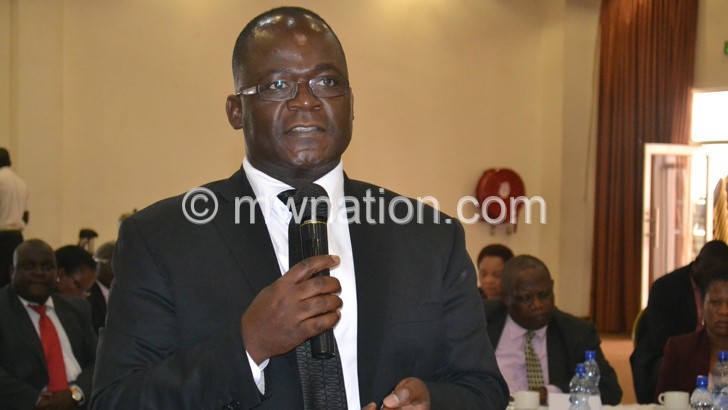Chamber Praises RBM For Slashing LRR
The Malawi Confederation of Chambers of Commerce and Industry (MCCCI) says it welcomes the recent move by the Reserve Bank of Malawi (RBM) to slash the Liquidity Reserve Requirement (LRR), saying the action will help reduce the cost of borrowing by private sector players.
Following the reduction of LRR from 15.5 percent to 7.5 percent effective August 1 2015, MCCCI has also said there is no justification for banks to charge high prime lending rates as they have a fraction of depositors’ money available to them that would earn interest.

players has been reduced

players has been reduced
LRR is a fraction of depositors’ money that every commercial bank is obligated to physically store at the central bank and that money does not earn interest.
Two major banks, National Bank of Malawi (NBM) and Standard Bank Malawi Limited have already slashed their base lending rate to 32 percent.
MCCCI chief executive officer Chancellor Kaferapanjira said on Tuesday the transmission mechanism of the benefits of cutting LRR to the private sector will be two-fold.
“First there is now more cash available to tap from. As such access to financing certainly has improved. In the absence of the knowledge of the exact amount of reserves kept at the Reserve Bank, one would assume that these are in multiple billions of kwacha,” he said.
The MCCCI boss stated that improved availability of liquidity would help improve access to finance, which he said is a positive development for the private sector.
Secondly, Kaferapanjira said the portion of reserves released through the reduction in LRR never used to earn any interest for the banks since it was not available for lending yet it was earning interest for depositors.
“The consequence was that the banks had to charge higher lending rates that would compensate for the interest earning yet idle reserves at the Reserve Bank. Since this fraction will now be earning interest as it is available to be lent out, the higher interest rates are no longer justified,” he said.
Kaferapanjira believes that is why the country has seen some commercial banks such as Standard Bank of Malawi reducing their base lending rates following the lowering of LRR.
Said Kaferapanjira: “The reduction in interest rate certainly has benefited the private sector as well as it has reduced the cost of borrowing. So, every business should welcome this policy move by the Reserve Bank of Malawi.”
According to RBM statistics, the lowering of LRR has translated into the release of about K40 billion into the financial system so far.





